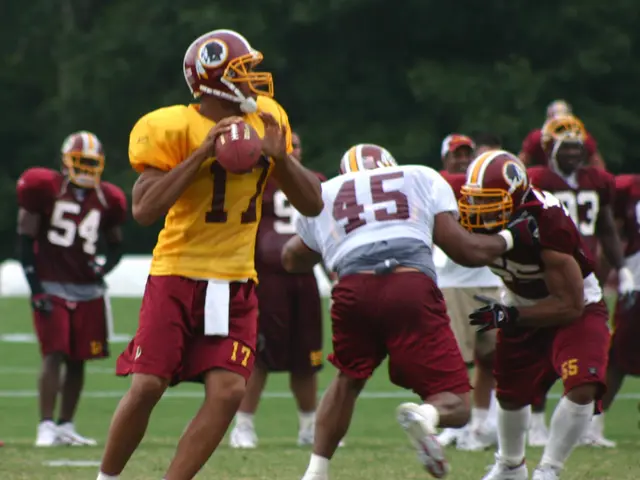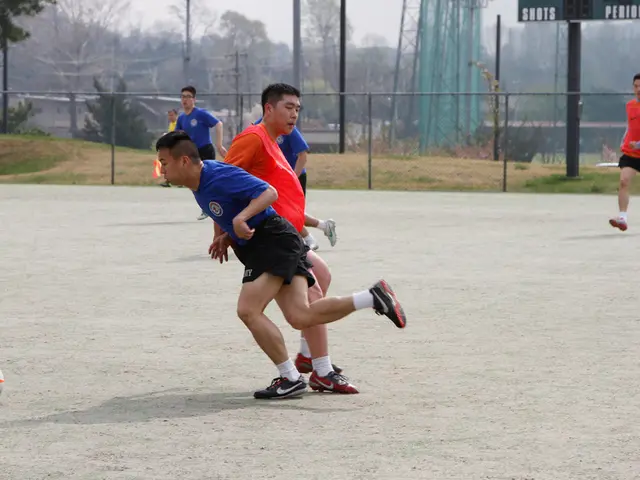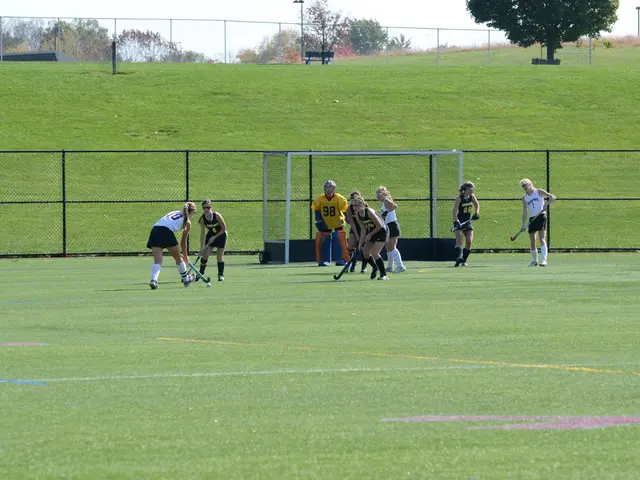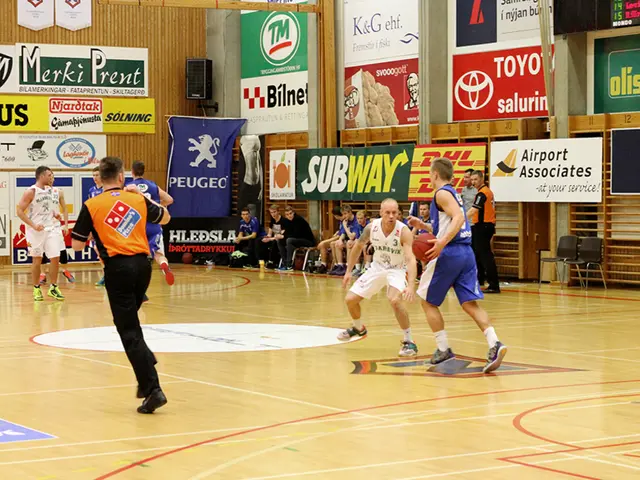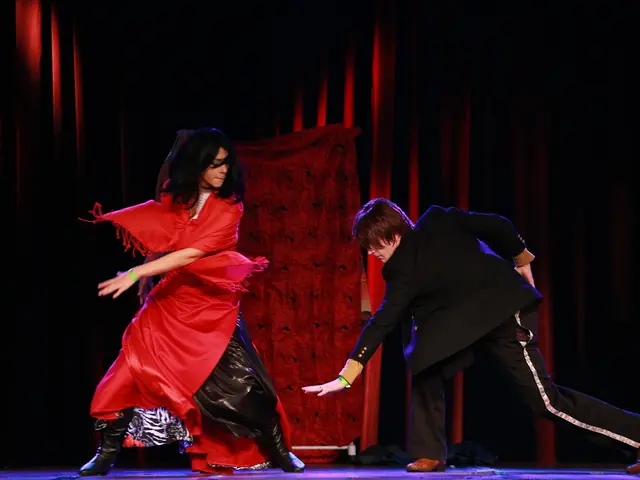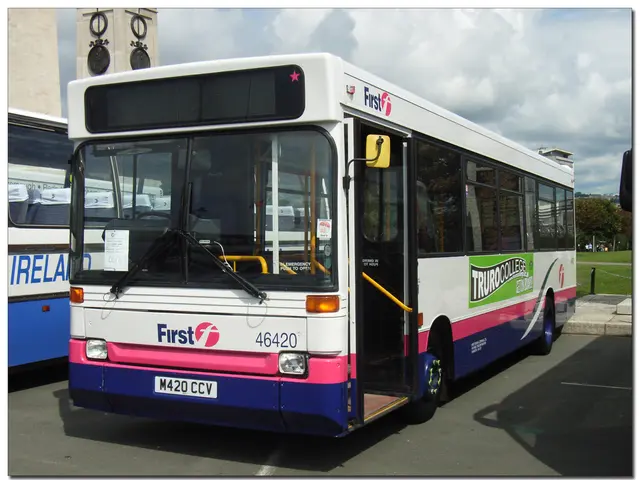Unleashing the Octagon: A Fight for the German MMA Throne
Europe witnesses surge in interest for German MMA scene
By Michael Bauer
Facebook Twitter Whatsapp E-Mail Print Copy Link
It's not just about smashing opponents and earning bragging rights—MMA has become a thriving spectacle in Germany. The packed arenas and stadiums are testament to the sport's escalating popularity, with Oktagon MMA leading the charge. But competition is coming from all corners of Europe, vying for a piece of the prized German MMA market.
Imagine a small village in the Eifel where people usually flock to football or handball games. Now, the chatter revolves around a 16-year-old boy's obscure passion: MMA training. His neighbors drive 45 kilometers there and back four times a week because the sport has taken root. This unexpected growth was unforeseen just a few years ago, but it seems this mixed combat sport has found its niche in Germany.
MMA isn't just a rough Punch-and-Kick cousin of the Ultimate Fighting Championship (UFC) that has found success in Germany; it's a harmonious blend of sport and entertainment. Oktagon MMA, the Czech promoter at the forefront, knows how to present the sport and its colorful athletes to captivate audiences. They tell enthralling stories of the athletes to generate sympathies while side-stepping the complexities of the sport.
Over the past three years, Oktagon has sold out the biggest arenas in Germany: Lanxess Arena in Cologne, Westfalenhalle in Dortmund, Hanns-Martin-Schleyer-Halle in Stuttgart. Thousands of spectators revel in these events, thanks to the thrilling staging of the fights, from the electrifying entrances to the already exciting sport itself. The climax came in October 2024, with 58,000 fervent fans cheering on in Frankfurt's Waldstadion, led by fan-favorite Christian Eckerlin, whose controversial past as a former footballer, Hells Angels member, and involvement with Frankfurt's red-light district elicits mixed reactions.
The grand spectacle found new backing when RTL, a major private broadcaster, entered the fray. For the next three years, Oktagon events in the DACH region will be exclusively available via RTL+'s in-house streaming service, a significant step for the sport that signaled a promising future.
Enter the Contenders
With Oktagon setting the standard, the German market is drawing eyes from across Europe. Smaller promoters are sprouting up like mushrooms, even holding combat sports events in school gyms. And half of Europe has its sights set on challenging the German market, according to ntv information. Poland's KSW (Konfrontacja Sztuk Walki) has its sights set on Berlin in 2026, Croatia's FNC (Fight Nation Championship) is eyeing Munich, and France's Ares FC hopes to establish itself in Germany.
A well-known name doesn't guarantee success in Germany; the market leader must remain wary of the international industry giant UFC's potential return after a decade-long hiatus. The other competitors may still face considerable challenges, as Germany's biggest stars are under contract with Oktagon, and the marketing efforts of the Polish and French organizations need refinement. However, the Croatian FNC might have the edge due to their similar program to Oktagon; they just need to address the language barrier.
The competition is far from infertile ground, as it offers the potential for growth and greater opportunities for the sport. As they say, competition breeds success. In the end, the market will evolve, and the pie will only get bigger.
From Grassroots to Glory
The rapid expansion of the German MMA market is a testament to the growing popularity of the sport, fueled both by grassroots passion and professional growth. Key trends include growth in amateur participation, surging fan interest, expanding professional scenes, increased international presence, and burgeoning commercialization. This influx has led to increased visibility, economic opportunities, and cultural acceptance for MMA in Germany.
Source: ntv.de
- Mixed Martial Arts
- Ultimate Fighting Championship
By incorporating enrichment data, we can further emphasize the rapid growth, expanded commercial opportunities, and cultural acceptance of MMA in Germany, paving the way for increased investment and fan engagement.
- Grassroots Support: The number of amateur competitors in the Deutsche MMA Liga grew by 17% from 2024 to 2025, underscoring broad interest and a wealth of promising talent[3].
- Rising Popularity: Over 40% of German voters expressed an interest in amateur MMA, suggesting the sport is gaining mainstream appeal and cultural relevance[3].
- Expansion of Professional Scene: Major promotions, including OKTAGON MMA, are expanding their reach in Germany with planned events in Dortmund, Hamburg, and Frankfurt in 2025, according to reports[4].
- International Ties: The Ultimate Fighting Championship (UFC) continues to strengthen its ties with the German market, renewing its deal with DAZN to broadcast top-tier events through 2027[5].
- Commercial Growth: The influx of sponsorships, broadcasting deals, and live events has provided new sources of revenue for fighters, promoters, and businesses[5].
These trends indicate the rapid growth, increased investment, and widening cultural acceptance of MMA in Germany, positioning it as one of the fastest-growing sports in the country[3][4][5]. The vibrant MMA landscape in Germany continues to attract the attention of fans and investors alike, making the future of the sport ripe for opportunity and excitement.
- Despite its origins as a rough sport, mixed martial arts (MMA) has become harmonious blend of sport and entertainment in Germany, with the Ultimate Fighting Championship (UFC) serving as a notable cousin.
- Oktagon MMA, a Czech promoter, has led the charge in Germany, selling out various arenas and attracting thousands of spectators with their thrilling staging of mixed martial arts fights.
- Sports such as football, baseball, hockey, golf, basketball, racing, and tennis are still popular in Germany, but MMA has been rapidly gaining popularity and conquesting new territories.
- Smaller promoters across Europe are seeking a piece of the prized German MMA market, with organizations like Poland's KSW, Croatia's FNC, and France's Ares FC setting their sights on Berlin, Munich, and Germany respectively.
- The influx of sponsorships, broadcasting deals, and live events has provided new sources of revenue for fighters, promoters, and businesses involved in MMA, positioning it as one of the fastest-growing sports in Germany.
- As the German MMA market continues to evolve, it presents a promising future for increased investment and fan engagement, as competition breeds success and the pie gets bigger.

